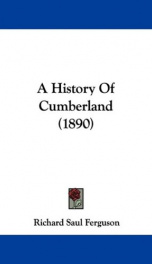carlisle

Purchase of this book includes free trial access to www.million-books.com where you can read more than a million books for free. This is an OCR edition with typos. Excerpt from book: CHAPTER III. STRATHCLYDE. Naturally, from their proximity to a district bitterly hostile to Roman rule, the Roman garrisons on the Wall were maintained to the latest period of the Roman dominion; it is doubtful if they were then withdrawn. The legions themselves were withdrawn, but it seems likely that the auxiliary troops, long stationary in the same localities, often in the same forts, ultimately remained among a people with whom they must have to a great extent become amalgamated. Whatever became of these troops, they were but of little effect against the invasions of the Picts and the Scots, the latter of whom harried the ex-Roman province, as well from their old seats in Ireland, as from their seats in Galloway and the west of Scotland. A still more formidable race of pirates infested the eastern and southern shores of Britain, known to the Romans as Saxons, and whose depredations had long ere now compelled the Romans to appoint a Warden (or Comes) of the march or shore exposed to the Saxon attack. These pirates were the English, a name which included three Teutonic tribes dwelling in what we know as Sleswick, namely, the Jutes, to the north of the present Jutland; the Angles, or English proper, just below them; and the Saxons on the Elbe,the latter the best known to the Romans, who included all three under that name;while the three leagued tribes bore among themselves the name of Englishmen,a name unknown to the Romans, but destined to be as famous and as glorious as ever was the name of Roman. These English invaders bestowed the name of Wealas or Welsh, that is, strangers, upon the people whom they found in Britain; and we shall use the names "Britons" and "Welsh" as meaning the same people. The English conquest of Britain commenced about forty years after the...
Info about the book
Author:
Series:
Unknown
ASIN:
117657373X
Rating:
2.5/5 (4)Your rating:
0/5
Languge:
English
Users who have this book
Users who want this book
What readers are saying
What do you think? Write your own comment on this book!
write a commentif you like carlisle try:
Do you want to read a book that interests you? It’s EASY!
Create an account and send a request for reading to other users on the Webpage of the book!



